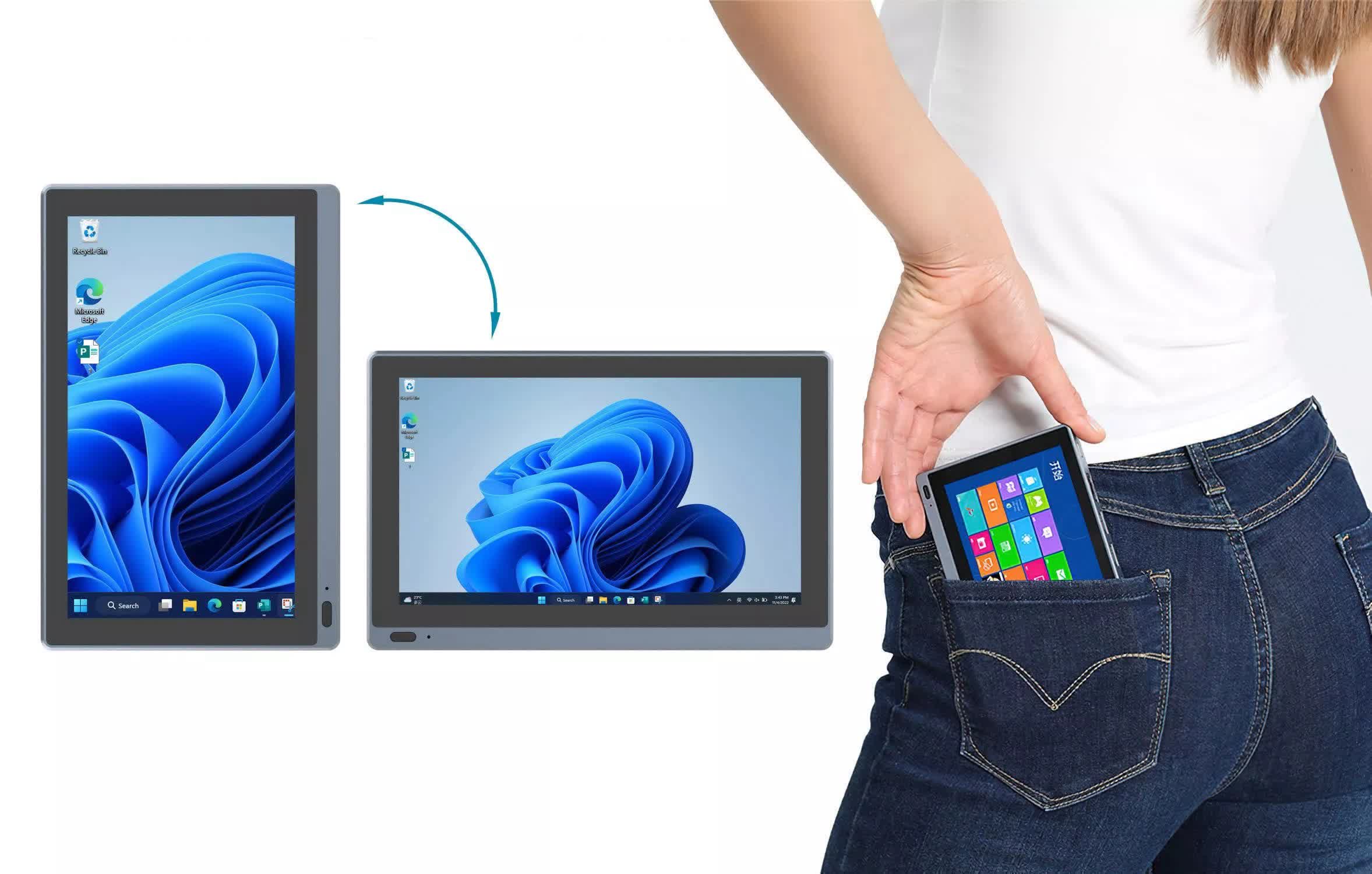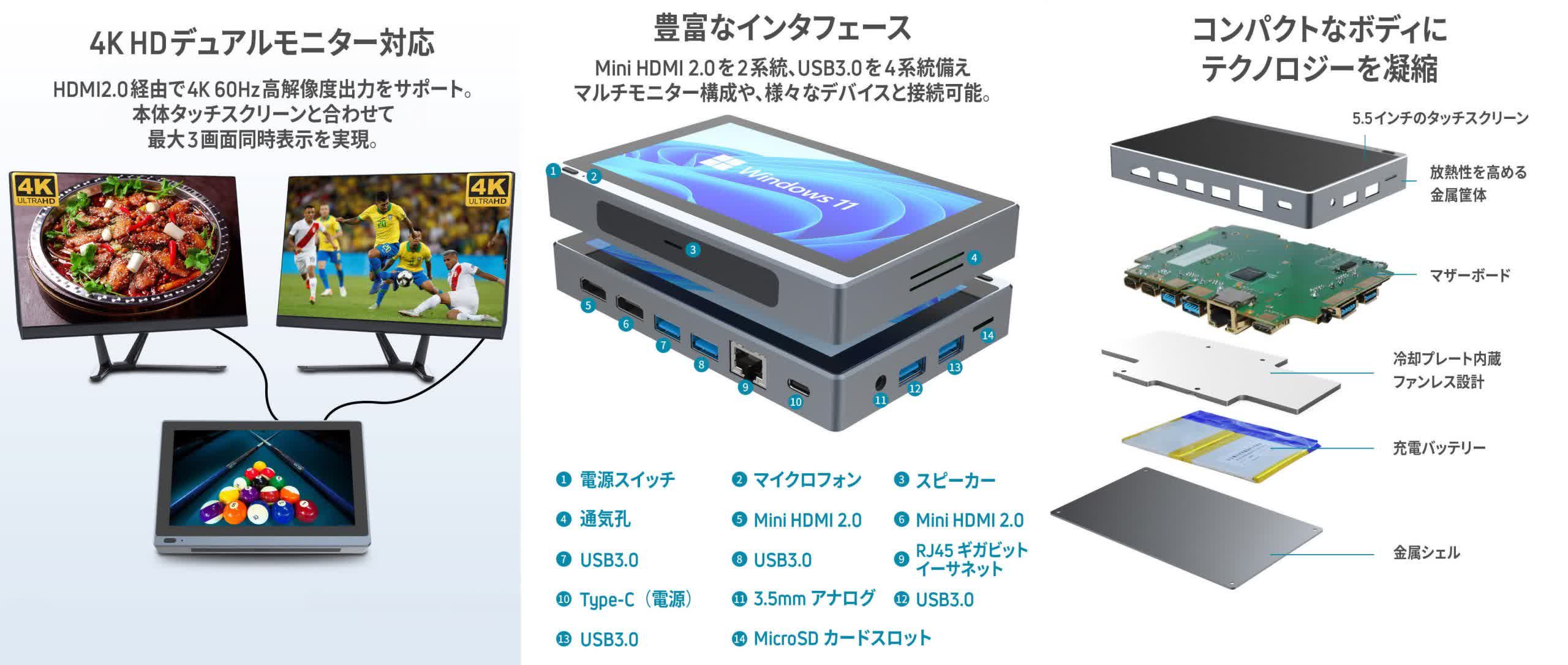WTF?! Handheld gaming PCs and other recent products have demonstrated how small devices running full-blown Windows can become. Gloture has taken things further with a Windows 11 PC that looks and feels more like a smartphone. Despite its weak specs, some surprising capabilities could make it useful in specific situations.

Japanese company Gloture now offers a device called the NanoPC. It has a 5.5-inch screen, runs Windows 11 Pro, and easily fits in most pockets. The price is not too offputting at 84,700 yen ($585). Its size resembles a smartphone but is designed more as a PDA than a phone. Of course, that shouldn't stop users from installing messaging and VoIP apps.
While most handheld gaming PCs like the Steam Deck or Asus ROG Ally run on AMD APUs, Gloture's NanoPC features a 2.7GHz Intel Celeron J4125 with UHD 600 graphics. The device packs a 2500mAh battery, 8 GB of LPDDR4 RAM, and 128 GB of eMMC storage. With a screen resolution of only 1280 x 720, it certainly isn't meant to offer a media-playing experience competitive with high-end phones or tablets.

Where the NanoPC earns its keep is in connectivity. It includes two HDMI ports, four USB 3.0 ports, a USB-C port, a gigabit ethernet port, and a microSD card slot. That's a lot of physical connection options for a device this small. It also supports WiFi 6 and Bluetooth 5.2.
All those ports could make the NanoPC a functional ultraportable workstation in settings where your primary PCs are unavailable. The HDMI connections can simultaneously maintain two 4K 60Hz outputs which, together with a Bluetooth or USB keyboard and mouse, could create a decent multi-monitor setup wherever you might need one.
Most people are probably fine using smartphones and tablets in situations involving devices this small. So the NanoPC certainly won't replace them. However, Windows does give it more seamless compatibility with desktops and laptops for tasks where interoperability is a priority. A product like this can likely fill many edge cases where an iOS or Android device either lacks the software to fulfill a task or necessitates an extra step that a portable Windows system wouldn't.
Unfortunately, Gloture's retailer Rakuten doesn't have international shipping. So aside from making a personal visit or finding one on eBay or elsewhere, a NanoPC is pretty hard to get outside of Japan.
https://www.techspot.com/news/99749-relive-pda-glory-days-gloture-55-inch-windows.html